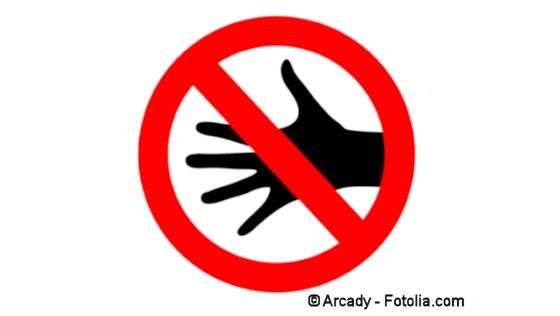Your lifestyle choices impact others.
Emor
For the week of May 9, 2015 / 20 Iyar 5775
Torah reading: Vayikra/Leviticus 21:1-24:23
Haftarah: Ezekiel 44:15-31
Others May, but You May Not

The priest who is chief among his brothers, on whose head the anointing oil is poured and who has been consecrated to wear the garments, shall not let the hair of his head hang loose nor tear his clothes. He shall not go in to any dead bodies nor make himself unclean, even for his father or for his mother. (Vayikra/Leviticus 21:10-11)
For many of us these kinds of regulations are quite foreign. In fact, ritualistic customs are deemed to be more and more irrelevant today due to our culture's slipping into profound meaninglessness. Appreciation for ritual of any kind requires an understanding of overarching truths about life and about a people's history and culture.
The other day, I read an opinion piece in our local community newspaper about how trite the singing of national anthems have become especially due to their use, or rather, abuse at the beginning of sporting events. Fans, for example, will leverage aspects of an anthem for the occasion or as a way to root for their team instead of taking time to acknowledge and honor the anthem's country. I don't know where the tradition of singing anthems before games comes from, but I imagine taking time to think about one's country is supposed to give us perspective, reminding us of a much bigger story of which the sporting event is one tiny part.
The life of ancient Israel was full of these kinds of reminders. And high on the honor scale was the priesthood. It wasn't because they themselves were so important; it was that their function within the community was to be a reflection of God and his character.
For this reason there were certain things allowed to the community in general that were forbidden to them. And even greater limits were put on the chief priest (Hebrew: cohen hagadol). A leader friend of mine years ago used to like saying, "Others may, but you may not." In a world that values freedom of choice and the autonomy of the individual, such a concept seems to be overly restrictive. But like the ancient priesthood, there may be certain activities, opportunities, and pleasures that are completely fine for some people, but not for others.
I am not talking here about necessary restrictions due to ability (don't go skydiving until you learn how), age (children can't vote), regulatory issues (you might know how to drive, but you don't have a license), or physical limitations (ignoring your peanut allergy could kill you). I am referring to the imposition of restrictions due to God-given role or roles.
Everyone has some sort of sphere of influence. The behavior of Presidents and Prime Ministers, like that of the chief priest, even with regard to personal and private affairs, can affect entire nations. Similarly other kinds of leaders, whether they be CEOs, teachers, coaches, ministers, law enforcement officers, and so on, all significantly impact those they lead and come in contact with. Not only do their decisions make a difference to others, but how they live their lives do as well. We should never underestimate the power of being an example to those we lead. Perhaps the greatest influence of all is that of parents upon their children. Enough research has been done to prove that the lifestyle of fathers and mothers permanently mold their children forever.
But lifestyle choices for most people today are viewed as rights. Doing whatever I want, when I want, with or to whom I want should be for me and me only to decide. How dare anyone restrict me in any way? This lack of consideration for others should be self-evident, but that doesn't seem to make a difference. Regardless of what people think, this kind of selfish living is highly destructive.
A biblical approach to life places responsibilities over rights. How I might affect others needs to be taken most seriously. The New Covenant's transition to a more inclusive and diverse community understands this. As people of different backgrounds began to form intimate communities it became necessary to consider each other's' scruples in a loving, serving manner (Romans 14:1-15:7, 1 Corinthians 8:1-13)
You may not think of yourself as having influence over others. But whether or not you regard yourself as a leader, if are a follower of the Messiah, you are his representative. Your particular life circumstances demand that you take your behavior seriously for the sake of God and others. There just might be some things in your life that others may, but you may not.
---
Unless otherwise noted, scripture quotations are from The Holy Bible,
English Standard Version®, copyright © 2001 by Crossway Bibles, a
publishing ministry of Good News Publishers. Used by permission. All
rights reserved.
Comments? E-mail: comments@torahbytes.org
Subscribe?
To have TorahBytes e-mailed to
you weekly, enter your e-mail address and press Subscribe
[ More TorahBytes ] [ TorahBytes Home ]
